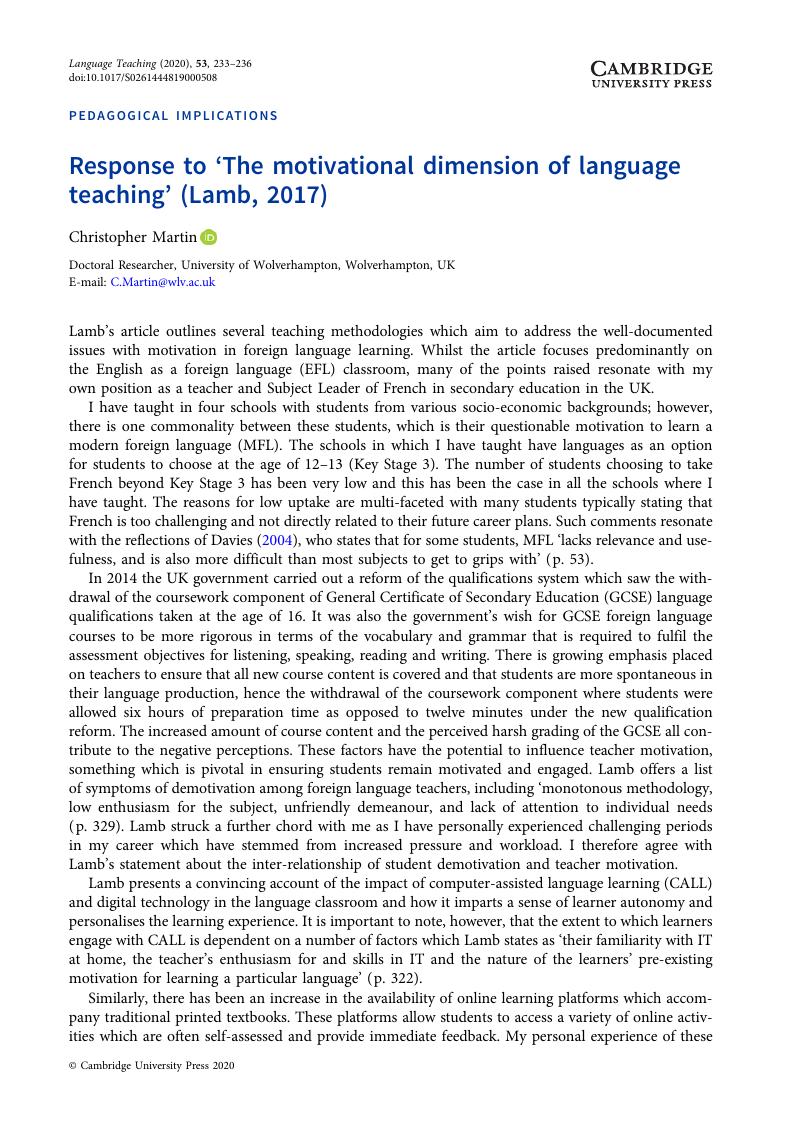Crossref Citations
This article has been cited by the following publications. This list is generated based on data provided by Crossref.
Martin, Christopher
2023.
Modern foreign language learning: exploring the possible impact of parental experiences on student motivation.
Innovation in Language Learning and Teaching,
Vol. 17,
Issue. 2,
p.
321.
Nation, Paul
2024.
Re-Thinking the Principles of (Vocabulary) Learning and Their Applications.
Languages,
Vol. 9,
Issue. 5,
p.
160.





